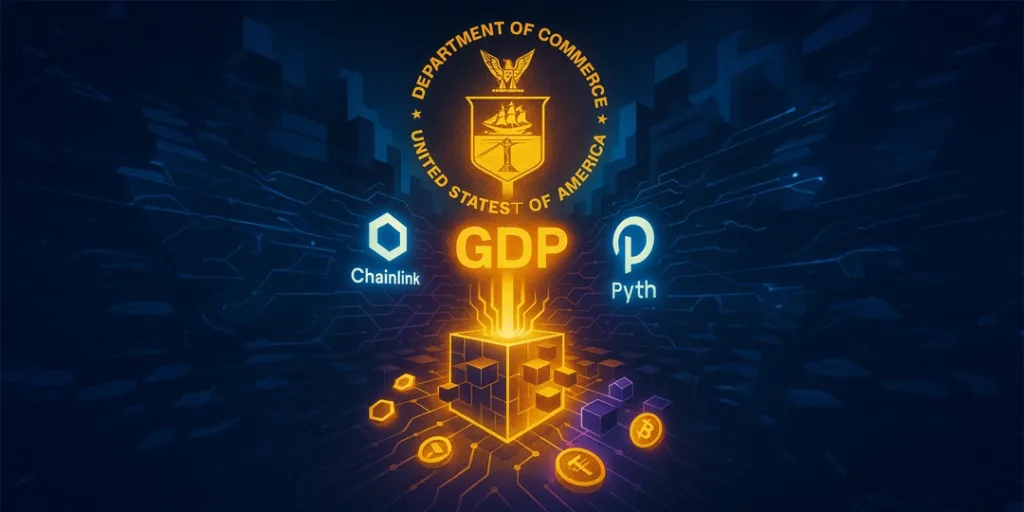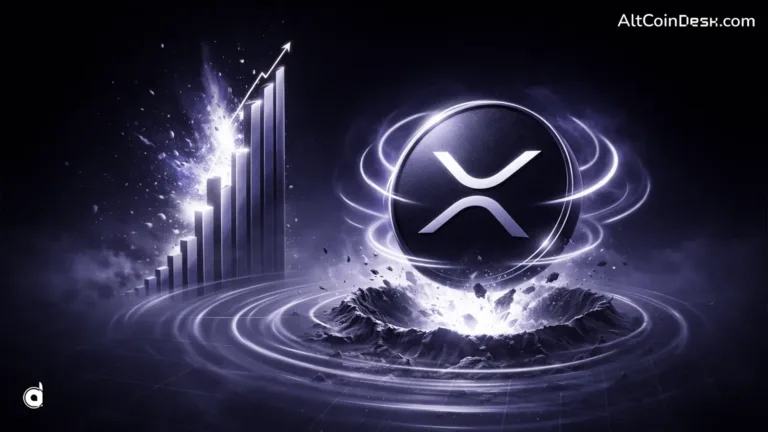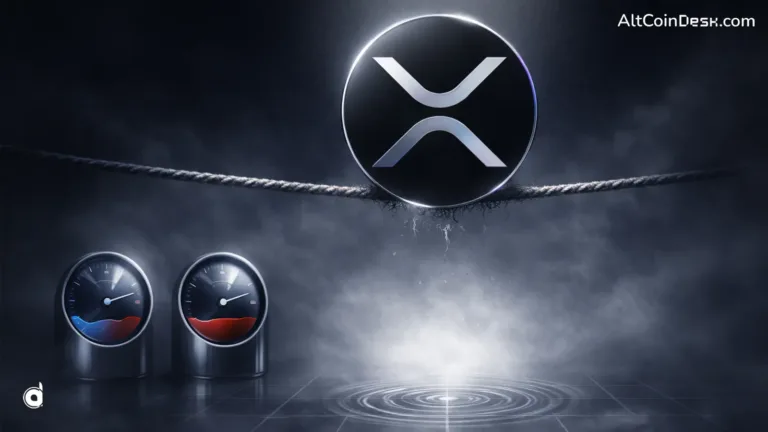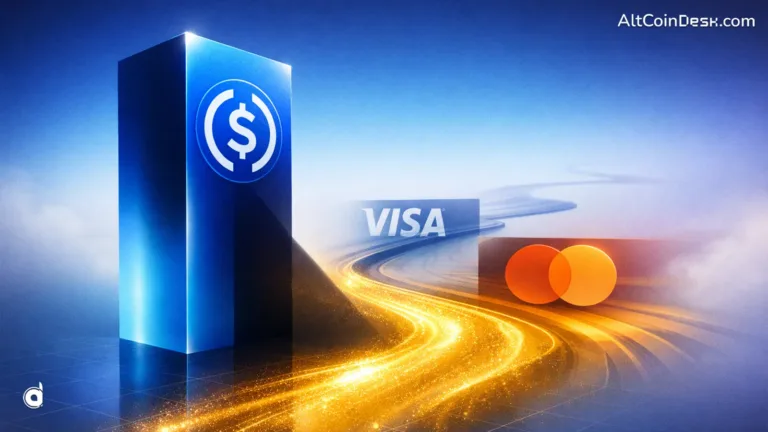Blockchain use cases are rapidly expanding as governments in several parts of the world have begun adopting the technology for their operations. What now comes as the latest use case is from the U.S. Department of Commerce, which has made a groundbreaking decision to upload Gross Domestic Product (GDP) data onto public blockchains!
Endorsing Bitcoin, Ethereum, Solana for storing data
GDP data beginning from July 2025 will be safely distributed on nine blockchains: Bitcoin, Ethereum, Solana, Stellar, TRON, Arbitrum One, Avalanche, Polygon PoS, and Optimism.
Chainlink and Pyth to fetch GDP data

Chainlink and Pyth are doing the heavy lifting
Meanwhile, Chainlink and Pyth act as oracles to pull in GDP figures from the Commerce Department and make the data accessible to smart contracts on the nine blockchains. As blockchain cannot fetch external data by itself, these oracles bring the off-chain data onto the blockchain.
And for infrastructure and distribution support, exchanges like Coinbase, Kraken, and Gemini stay proud to facilitate technical publication of GDP data onto blockchains. They take the hash (digital footprint) of the GDP data and put it in the right blockchain addresses.
The optimistic move is a way to make America’s economic truth “immutable and globally accessible like never before”, according to U.S. Secretary of Commerce Howard Lutnick.
Why does this landmark change matter?
Economy on blockchain sounds quite interesting and unique. With blockchain innovation escalating and crypto adoption increasing, the real use case of the technology is being exposed to the public. The latest groundbreaking effort speaks volumes about why the US Department of Commerce is moving GDP data to blockchain:
Transparency – Glassy as glass! The data on blockchain is transparent, immutable, and cannot be altered.
Greater accessibility – Anyone can look at the economic numbers of the US. Blockchain explorers such as Etherscan, Solscan, and Tronscan display the official smart contract associated with published data. Each blockchain has its own dedicated explorer.
Connects TradFi and DeFi – traditional financial data can now be digitized for public accessibility.
Innovation – macroeconomic data is now combined with blockchain technology to bring out tamper-proof data.
The Philippines considers storing budget on Polygon blockchain
At the same time, Philippine Senator Bam Aquino announced plans to record the country’s entire budget directly on the Polygon blockchain. Together, the moves by the U.S. and the Philippines underscore how blockchain is transforming the government sector.
A push for blockchain in all sectors of life, a reality that was once a dream, is becoming common now. This shift indicates how governments are now seeing blockchain not just as a financial tool, but as a haven for transparency and trust. If critical data needs to be protected and transparent, the ideal place would be blockchain.





